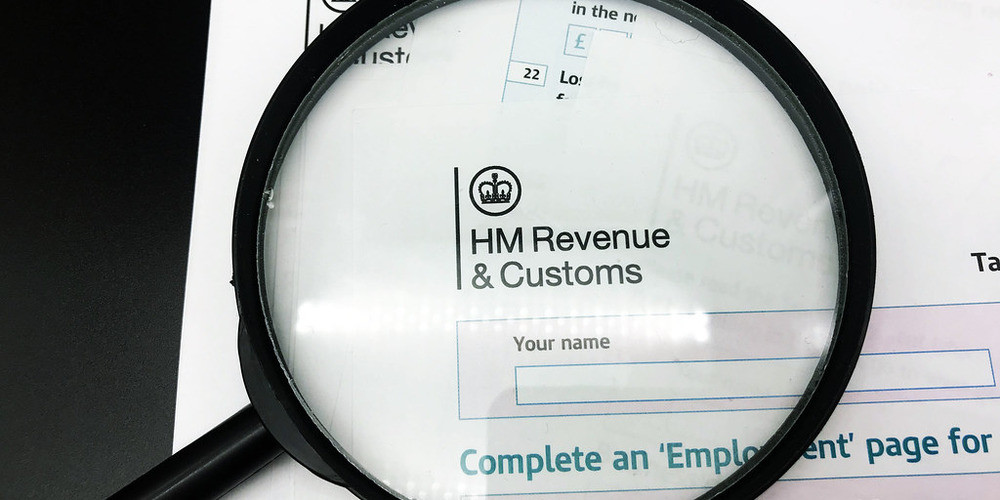Navigating the New Tax Terrain: Online Sellers and HMRC's Watchful Eye

The digital marketplace has transformed the way we sell and buy goods. With a few clicks, anyone can become a seller, turning clutter into cash. However, the very convenience that makes online selling appealing has caught the attention of tax authorities. To guarantee equitable practices, the UK's HMRC is strengthening control over digital sales transactions to ensure all parties are paying the appropriate amount of taxes.
This clampdown isn't without good reason. The surge in online selling has been phenomenal, and platforms like Vinted, eBay, and Airbnb have become household names. With millions participating, the potential tax revenue from these transactions is significant. HMRC's new rules aim to capture this, mandating that digital platforms collect and report user earnings. This is part of a global initiative led by the OECD, targeting tax evasion and ensuring a level playing field.
Who's in the spotlight? Essentially, anyone who's making a penny online. Whether you're a gig economy worker, a cottage industry entrepreneur, or just someone flipping finds from the flea market, these rules apply to you. The criteria for scrutiny include the volume and value of transactions. If you exceed a certain threshold, expect your details to be shared with HMRC.
The mechanics of this new system are straightforward. Platforms will gather personal details and transaction records, starting a comprehensive paper trail from the online marketplace to the taxman's desk. This will happen annually, giving HMRC a clear picture of who earns what. The goal is to match this data with individual tax returns, ensuring that all online earnings are taxed correctly.
What does this mean for the average online seller? If you're dabbling in digital sales, you might not be immediately affected. There's a threshold in place to exempt casual sellers, protecting them from unnecessary tax burdens. However, if your online endeavors are more than just a hobby, it's time to get your tax affairs in order. HMRC's initiative is a stark reminder that in the age of the internet, transparency is key, and everyone must play by the rules. It's not just about compliance; it's about contributing to the system that supports us all.
Latest posts
See more-
![The Last of Us Part II: In-Depth Character Analysis and Storyline Exploration]() Editor’s Choice
2024-08-11
The Last of Us Part II: In-Depth Character Analysis and Storyline Exploration
The Last of Us Part II is an action-adventure video game that has gained significant popularity since its inception. Developed with immense creative prowess by...
Editor’s Choice
2024-08-11
The Last of Us Part II: In-Depth Character Analysis and Storyline Exploration
The Last of Us Part II is an action-adventure video game that has gained significant popularity since its inception. Developed with immense creative prowess by...
-
![CrossCode Developer Announces Alabaster Dawn, Enters Early Access in Late 2025]() News
2024-08-12
CrossCode Developer Announces Alabaster Dawn, Enters Early Access in Late 2025
In 2021, Radical Fish Games initially introduced a new action RPG titled Project Terra. Now, they have officially named it Alabaster Dawn and announced that...
News
2024-08-12
CrossCode Developer Announces Alabaster Dawn, Enters Early Access in Late 2025
In 2021, Radical Fish Games initially introduced a new action RPG titled Project Terra. Now, they have officially named it Alabaster Dawn and announced that...
-
![Alabaster Dawn Planned to Have 30-60 Hours of Playtime, Demo Launching in Early 2025]() News
2024-08-13
Alabaster Dawn Planned to Have 30-60 Hours of Playtime, Demo Launching in Early 2025
Radical Fish Games has made an exciting announcement regarding their upcoming action RPG, Alabaster Dawn, which is set to enter early access in 2025. In...
News
2024-08-13
Alabaster Dawn Planned to Have 30-60 Hours of Playtime, Demo Launching in Early 2025
Radical Fish Games has made an exciting announcement regarding their upcoming action RPG, Alabaster Dawn, which is set to enter early access in 2025. In...
Latest Reviews
See more-
![]() Action
Cult of the Lamb
Action
Cult of the Lamb
-
![]() Action
WILD HEARTS™
Action
WILD HEARTS™
-
![]() Casual
Gacha Club
Casual
Gacha Club
-
![]() Action
Call of Duty®: Warzone™ 2.0
Action
Call of Duty®: Warzone™ 2.0
-
![]() Action
Gacha Cute
Action
Gacha Cute
-
![]() Action
Cuphead - The Delicious Last Course
Action
Cuphead - The Delicious Last Course










